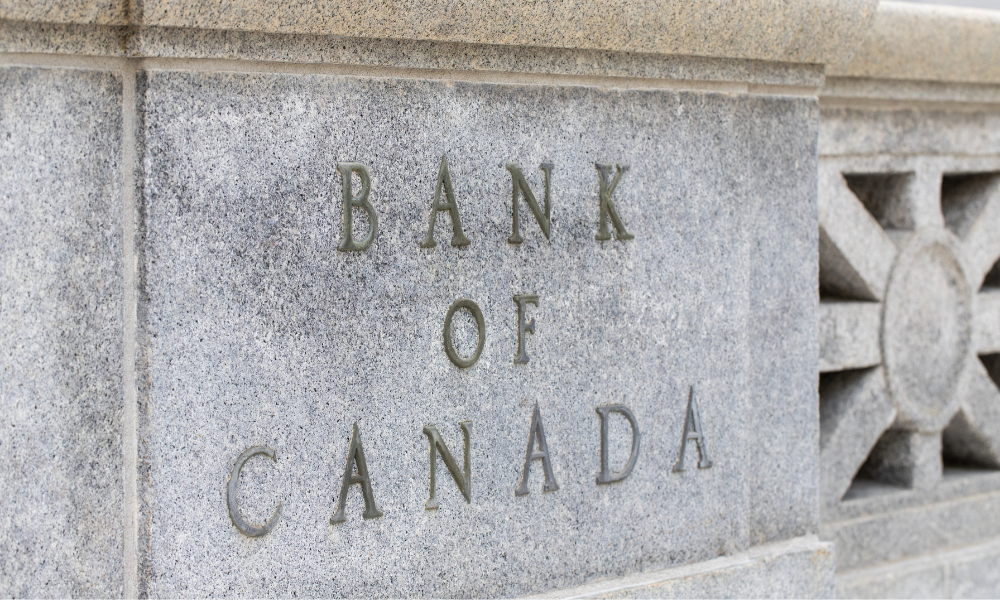Canada's consumer price index may have eased in June, but core inflation remains a tough nut to crack for the BoC

With inflation having soared so high and being so stubborn, pushing interest rates to 5%, any sign of easing offers some relief, but how much difference will softer CPI growth make?
Statistics Canada’s figures released Tuesday show that the Consumer Price Index (CPI) grew 2.8% year-over-year last month, down from 3.4% in May, led by lower gasoline prices without which the CPI would have risen 4% (down from 4.4% in May).
And of course, there are some costs that are really challenging the budgets of millions of Canadians including groceries which were up more than 9% in June and mortgage costs which continued to surge at 30% due to higher interest rates.
Wealth Professional has been finding out what some of Canada’s leading economists make of the latest stats and what it may mean for interest rates.
Franklin Templeton
“A pretty positive headline CPI figure of 2.8% which surprised to the downside vs. market expectations, below the important milestone of 3%,” noted Michael Greenberg, SVP, portfolio manager, Franklin Templeton Investment Solutions.
However, Greenberg and other experts point to Canada’s core measures of inflation which remain concerning for the Bank of Canada (BoC).
“They remain elevated and well above the 2% target and came in slightly above market expectations. This continues the narrative that inflation is moving in the right direction, but we are seeing stickier and more persistent core inflation,” he said.
Does Greenberg see another hike on the way or can the BoC apply the brakes once more as per market consensus?
“Our expectations are that with the lagged effects of previous hikes still working their way through the system and inflation trending in the right direction, they will be able to pause and allow higher rates to do their thing while watching how the data unfolds,” Greenberg said. “The BoC will be concerned that more persistent excess demand will make it difficult to get their core measures down to the 2% inflation level. In fact, they don’t see hitting that mark until mid-2025. Strong immigration will likely continue to be a driver of some of the inflation, especially on housing and rent.”
Therefore, there remains a risk that the BoC will need more hikes or to maintain higher rates for longer.
PIMCO
At PIMCO, managing director and economist Tiffany Wilding highlighted that despite the weakness in total CPI, the average of the BoC’s CPI-trim (a measure of core inflation that excludes extreme price movements) and CPI-median core (which measures the median price change) ticked 0.1 percentage points higher to 3.8% 3-month moving average (3mma), while the core services (excluding shelter) metric remained elevated at 4.7% (3mma).
Wilding says that the BoC is unlikely to be celebrating the easing CPI and that the sticky core measures of inflation means that further interest rates hikes may be needed.
But will Governor Macklem be announcing a rate hike in September?
“With July CPI still to be released before the September meeting, the interest rate decision is likely to be influenced by whether the above core inflation measures finally break lower on a 3-month moving average basis as the strong April release moves out of the averaging period,” Wilding concluded.
RBC Economics
Claire Fan, economist at RBC Economics, concurs that the stickiness of the central bank’s preferred measures of inflation - in part supported by resilience in domestic consumer spending - will be an issue.
But while the BoC still has work to do, Fan and the RBC Economics team think there is a case for a pause.
“We continue to expect the full impact of rate hikes to-date to come through gradually, slow spending over the second half of this year and for that to push the central bank back on the sidelines with no additional interest rate hikes this year,” she said.
Desjardins
Randall Bartlett, senior director of Canadian economics at Desjardins, also expects that the BoC will hold off on further rate hikes in 2023, noting that in its most recent Monetary Policy Report it gave itself until 2025 to bring inflation down to 2%.
“Given that the Bank even considered pausing at this month’s meeting, the better-than-expected inflation outcome reinforces our forecast for the overnight rate to be maintained at 5% for the remainder of the year,” concluded Bartlett.



